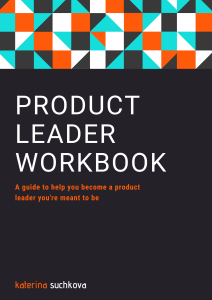If you want to become more intentional about your career in the new year but are still deciding where to start, or everything appears complicated and time-consuming, start here. This post offers a straightforward way of looking at your professional life and adding some nurture to it so that you live a more fulfilled life.
****
When some of us hear the word “nurture,” we tend to think about children or plants. However, if we look at the Latin and Old French origins of it, we’d see that “nurture” means “upbringing, promoting growth or development” besides “supplying with food and water.” With that definition in mind, applying the word and concept of nurturing to a career makes much more sense.
Over the years, I’ve realized I must take a radical act of nurturing my career to live a meaningful and impactful life. In this piece, I want to share a framework you can leverage to nurture and grow your career proactively and intentionally.
So, what does it mean to nurture your career? Based on my experience, hundreds of hours of coaching product managers and leaders, and exploring Buddhist practices, I’ve created a straightforward process for nurturing one’s career. The following components comprise the process: detachment, objective perspective, reflection, vision, continuous investment, and non-attachment. Let’s break down each part.
Detachment
You are looking at your career as a standalone object. Imagine your career is a separate entity: product, project, initiative, etc., that you’re responsible for. You are not it; you are merely a caretaker or a scientist who looks at this object. Once you separate yourself from your career, you’ll realize how less personal but more fun it becomes. Words, situations, decisions, and people surrounding it will appear as just components of your project. They no longer hurt you; they no longer hunt you at night.
Objective perspective
When we plan our careers, we tend to have a subjective perspective: it is narrow and shortsighted. We only see part of the picture because we are our career. However, if we apply the first principle and detach ourselves from our careers, we immediately look at it through wide lenses. Our decisions become more apparent, and our actions are less biased. Being objective gives us a superpower where our emotions or feelings do not influence us, and neither do people who cause these emotions.
Reflection
Before moving forward, creating space that allows for deep thinking might be wise. Reflection allows us to identify what’s been working for us and what’s not, when we are at our best, what hinders our progress, and why we do what we do. When we give intense consideration to our career up until this point using the prompts mentioned above, we equip ourselves with the self-awareness and clarity needed to go forward with intention and confidence.
Vision
Following Stephen Covey’s second habit of highly successful people, we “begin with the end in mind.” Here we can allow ourselves to dream boldly, drop limiting beliefs and paint the future version of ourselves and our careers. Sometimes, defining a North Star might be helpful; other times – being more vague yet descriptive is useful. Vision helps us to stay on track when a storm hits our career ship. Write it down – don’t just keep it in your head.
Continuous investment
Once you’ve figured out a vision, it is time to take action. Break your actions into small steps – achievable and ideally measurable – to get closer to your North Star. Again, don’t keep them in your head, and don’t overcomplicate this process. Use tools that are more intuitive and familiar for you – Notion, Google Sheets, a piece of paper, sticky notes, Miro, physical whiteboard – you name it. Outline 2-3 significant actions and break them into 3-5 steps. Next to the step, ask yourself: how would I know I am on the right track? Am I successful? The answer is the measure you need to track and check on every month. Every step is a small investment you’re making in your career.
Non-attachment
Non-attachment is the most counter-intuitive step in this process, but it is essential. Without it, you’re likely to narrow focus on checking the boxes, overly clinging to your goal, and too much identifying yourself with the vision you’re trying to achieve. You become your vision, and every setback and achievement might create a significant emotional response. Celebrating success is, of course, important; mistakes can be discouraging. However, identifying with those is neither helpful nor wise. Moreover, zeroing in on the goal alone rubs you off by experiencing the journey and everything it offers toward your vision. If I may suggest one thing is to focus on the steps you are taking rather than a destination. This approach is more likely to enrich your life.
***
If that still feels overwhelming, it is okay; give yourself permission to experience this emotion. Becoming more intentional sometimes feels challenging, but it does not have to. Connect with me for a discovery session if you want more guidance. We all can benefit from having a coach, and Product Managers are not an exception.



